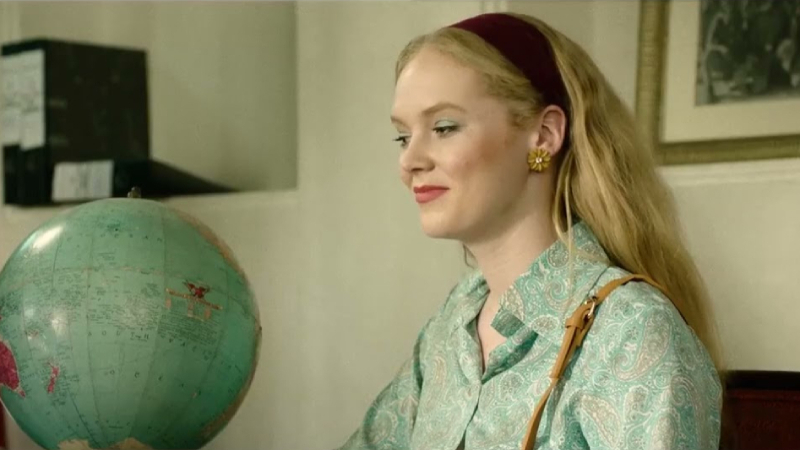






































The year is 1965, and the place is a Dubai very different to the what most Westerners are used to seeing. Still a British Protectorate in the Trucial States (independence only occurred six years later), the still-developing city boasts mostly simple bricks-and-mortar houses on yellow-hued, unpaved roads, the warm colour palette reminding viewers of the intense heat that castigates the arid region. The modern, heavily mirrored skyscrapers are nowhere to be seen. The inhabitants do not live a precarious life, however wealth isn’t as abundant as it is now.
Khalifa (Eslam Al Kawarit) is in his late teens/early 20s, and toils as a letter writer. He writes correspondence (“inquiries, complaints, follow-ups, recommendations, apologies, even divorce”, he explains) for illiterate Arabs. One day, an Indian merchant called Mr Mohammed (Muhammad Amir Nawaz) asks him to write a letter in English to a British customer with whom he is smitten, and has now returned home to the UK. Her name is Elli (Rosy McEwen), an astounding young woman with the picture-perfect English Rose looks. Khalifa becomes infatuated with her photograph. He convinces Mr Mohammed that he should keep it for “inspiration” purposes while writing the letters (he eventually convinces his costumer to trust his not only with the writing and the translation, but also with the content of the letters). He frames the image and puts on his desktop, much like a divinity in a shrine. This is the ultimate definition of vicarious love: Khalifa finds fulfilment by pretending to be Mr Mohammed. But is there a chance that he could take this to the next level?
The issue is that Khalifa barely speaks English, let alone writes it. Such skill was frowned up at a time the independence, when anti-British sentiment was at its highest. Khalifa is reminded that speaking English does not prevent from being Arab, but that’s of little help. The young man has to recruit some help in order to communicate efficiently with Elli. Meanwhile, his family want him to to devote his attention to a young woman called Noora (Marwa Al Hashimi), but Khalifa is mostly indifferent to the beautiful suitor. This is an intercontinential, interracial and platonic love story.

The topic of British imperialism is central. In fact, it shapes this deceptive “three-way” relationship. In a way, Khalifa is in bed with the enemy. That’s because he’s a pan-Arabist (someone who believes in the unification of the Arab world), and therefore rabidly anti-British. His friends test Khalifa’s allegiance by challenging him to urinate ion the British flag. The problem is that the flag is on the pole, and in order to reach it they must “piss vertically”. But not all goes to plan, and the audacious plans have very dear consequences for the romantic young man. The Indian character represents another repercussion of British Imperialism,. The colonised are not monolithic: the differences between Arabs and Indians are just as pronounced as the differences between Arabs and Brits.
The Letter Writer rescues the essence of simple and puerile romance. Most people might find that the idea of falling in love with a picture is silly and absurd. That’s because we live in the age of excessive information and images, and we have come desensitised to some of the most elementary pleasures of life. It is perfectly conceivable that a young man should experience his coming-of-age in such a peculiar manner, thereby rejecting the strict norms and racist conventions established by his society.
Layla Kaylif’s has a heartwarming denouement, with a lighthearted takeaway. Cilla Black adds the finishing touch of nostalgia with a rendition of Love Letters. Romance is almost invariably equated with marriage, an orthodoxy the film never questions, This illustrative of a very conservative society and era, when/where out-of-wedlock relations were a no-go. Presumably, even the representation of unmarried relations remains a taboo in the deeply religious Arab. Curiously, the director opts to leave the topic of religion virtually out of the film, allowing instead the political, racial and geographic barriers to prevail. I have little doubt that the filmmaker set out to cater for both Arab and Western sensibilities, however Europeans exposed to more risqué cinema may find the movie’s approach to sexuality a little timid. Don’t expect a rollercoaster of passion and desire. This is the warm and gentle tale of an unblemished heart seeking their first adventure.
The Letter Writer is on Amazon Prime on February 14th (Valentine’s Day) in the US, and on February 19th in the UK.
















